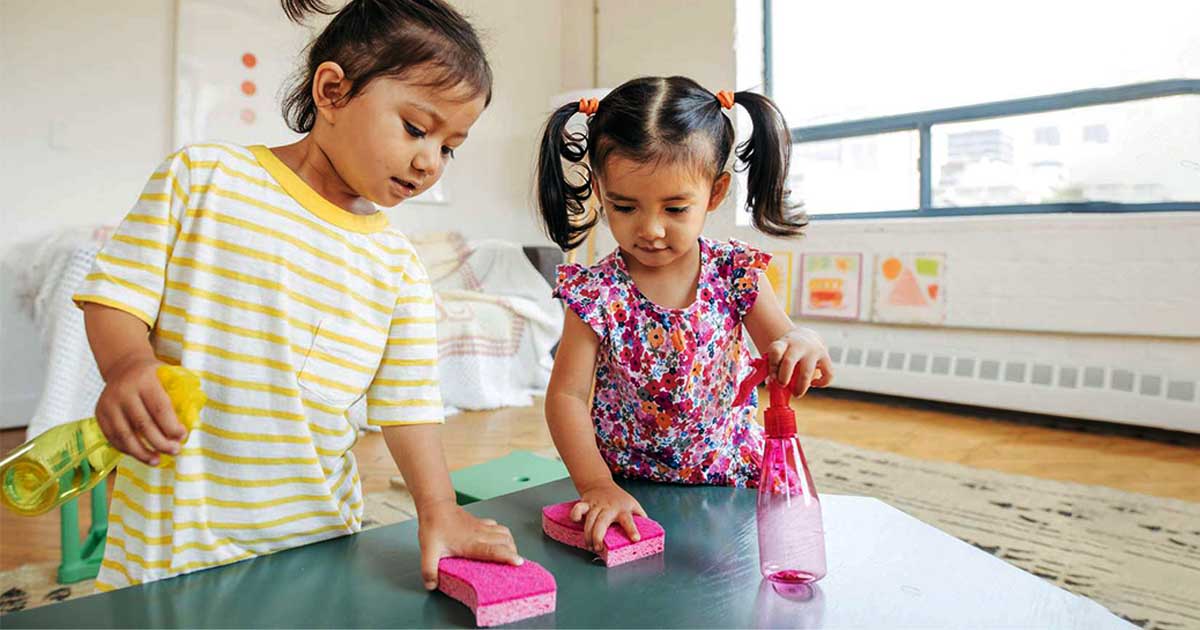Let’s face it, all foster kids, even the newborns entering care, carry the weight of inherent trauma. Foster care, marked by parental separation, is an undeniable challenge.
Thus, making the effort to take time to learn how to be a foster care parent could be the best thing for the child you are opening your home up to!
And that’s not even considering the circumstances that brought these kids into foster care in the first place!
So, let’s explore together the essential tips and insights that can help you navigate this meaningful journey of becoming a foster care parent!
What Is Foster Parenting?
Foster care parenting is about opening your home and heart to children who are not able to live with their parents right now. Children come into foster care because they are facing tough things at home, or they might not be safe there.

As a foster parent, your job is to give them a safe and caring place to stay while their own family works on making it better.
You will be the one taking care of them, making sure they’re okay, and helping them feel loved. When learning how to be a foster care parent you have to know that the goal is to help the kids and their families get back together when things are better.
Being someone’s foster parent might sound hard, but it’s how you can make a big difference in a kid’s life.
No one can replace their parents, but that’s not what you’re here for. You work together with social workers and the child’s family to make sure everyone is doing their best to support the kid.
Sometimes you’ll have moments where everything seems great, other times it’ll seem impossible… But every moment will be worth it!
Read More: What Is Childhood Trauma? 4 Signs of Lingering Childhood Hurt
Benefits Of Foster Care Parenting You Should Know
Learning how to be a foster care parent can be tough. It’s riddled with challenges. However, it also comes with its fair share of benefits and rewards.
Here are some positive aspects to highlight in what is foster parenting:
1. Making a Difference
One of the biggest benefits that come with being a foster care parent is the opportunity to make a positive impact on children’s lives. By providing them with a safe environment, you’re helping them navigate difficult times and putting their well-being at the forefront.
2. Learning and Growth
Foster care parenting means having to work with children from different backgrounds and experiences. Although this may sound intimidating, it offers an opportunity for personal growth. Because of this, you’ll develop a deeper understanding of varying cultures and perspectives.
3. Building Amiable Relationships
While the arrangement is only temporary, foster care can lead to long-lasting relationships between you and the child you care for. This makes for emotional support along with a sense of belonging for the child.
4. Sense of Fulfillment
When fostering children it gives off an aura of fulfillment knowing you’re here to help somebody during one of the most important moments in their life. Being able to witness their positive changes and growth is gratifying.
Although fostering children isn’t easy, many find it extremely rewarding due to its potential positive outcomes such as making a difference in somebody else’s life.
Read More: 7 Early Signs of Childhood Mood Disorders and Ways To Treat
What is The Eligibility For the Foster Care System?
There are a few things you need to know if you’re considering how to be a foster care parent. You need to meet certain criteria for this to happen.

Here’s the breakdown:
1. How Old You Need to Be:
You should be at least 21 years of age.
2. Staying Healthy:
Everyone in your home should be healthy, both physically and mentally. A medical check-up might be necessary and your health information will have to be shared with the agency.
3. Managing Work and Taking Care of Kids:
If you work outside the house, you’ll have to make plans to take care of the child after school or during the summer. The agency must know about these plans.
4. Being a Good Person:
For consideration purposes, you’ll need references that show that you’re a good person who can take care of kids. The agency will check your morals, judgment, and ability to handle money well.
5. Your Family Situation:
If any changes occur in your family like getting married or divorced you need to tell the agency, as it may affect your ability to take care of foster kids.
6. Your Willingness and Ability:
The agency will ask why you want to become a foster parent and if you understand your responsibilities. There will also be questions about how being a foster parent works with discipline, family life, and current lifestyle.
7. Relatives Taking Care of Kids:
If there are relatives taking care of the child then they must meet those same rules too.
Understanding how to be a foster care parent is not an instant process. It’ll take some time before completion but it’ll be worth it because it makes a huge difference in a child’s life.
Read More: New Dad Stress? 10 Alarming Signs And Effective Tips on How To Manage It
How To Be A Foster Care Parent: What You Need To Know!
Becoming a foster parent requires jumping through hoops, like many other things in life.
So here is an overview of the process of how to be a foster care parent and what it looks like.
1. You Have To Qualify
The first box you need to check is being 21 years old unless it’s 18 depending on where you live. You should have a consistent income that can support your family and your foster child, as well as having enough rooms for everyone.
2. Background Checks
Everyone in the household has the burden of completing a background check, including fingerprinting. This also includes checking with federal sex offender registries and state registries for child abuse or neglect.
3. Home Study and Interviews For Practice
The next step takes place with a social worker coming to your home to make sure it’s safe for children. They will also hold interviews with all family members.
4. Training Program For You
Prospective foster parents are required to go through training, which will vary depending on the state guidelines. This covers different aspects of foster care and helps teach you how to properly handle the different needs of each child.
5. Licensing/Certification You Need To Know
In America, all foster parents must be licensed or approved before they are allowed to have children under their care. How this is done can change depending on your location.
6. Help is Always Available
It’s expected of these parents to provide a safe environment for their kids who are not biologically theirs. Being flexible, patient, understanding, and knowing how to socialize with others is also important when working alongside social workers and other helpful community resources.
Read More: How Social Workers Collaborate With Healthcare Teams To Help
7. Monetary Assistance From The Government
Foster parents will be given money that should only be going towards room and board costs if they wish to take them in return. Foster children can qualify for Medicare and other benefits like free lunch at school.
8. Duration of Stay
The amount of time kids stay in what is foster parenting changes on a case-by-case basis. Some might only need help for a few months while others could end up staying with their new families for a year or more.
10. You Can Also Adopt The Child
If you really want to adopt the child you’ve been fostering, sometimes you can do that. They’ll check if your home is good for the child if you can take care of them well, and if you’re ready for a long-term commitment.
If everything looks good and it’s best for the child, you might get to officially become their family through adoption. Just talk to the people who handle these things, like the child welfare people and the legal folks. They can help you figure it all out.
Agencies will support you to help ease some of the stress put on your shoulders. This includes in-person visits, 24-hour on-call visits, and anything else needed to make being a foster parent easier.
It’s important to remember that being a foster parent is a huge responsibility. You also need to be confident that this is the right decision for you and your family before reaching out to any agency in your local area.
Read More: What Is Parenting? 5 Steps To More Effective Parenting
A Word From Mind Family
As we wrap up our guide on becoming a foster care parent, it’s essential to reflect on the journey you’re embarking on. Foster parenting is a noble and impactful decision that can profoundly affect a child’s life.
It’s about offering stability, love, and support to children who have faced challenges and uncertainties in their young lives.
Remember, every child that comes into your care brings their own story, needs, and personality. Your role is to provide them with a nurturing environment where they can feel safe, grow, and develop.
The road to foster parenting might be filled with challenges, but it is equally paved with moments of profound joy and fulfillment.
At Mind Family, we understand the significance of this journey and the questions that may arise along the way. We’re here to support, guide, and provide you with the resources you need to navigate this fulfilling path.
Remember, you’re not alone in this journey; there’s a whole community and network of support available to you!
Frequently Asked Questions (FAQs)
1. What is foster parenting?
Foster parenting means opening your home and heart to kids who can’t live with their parents temporarily. You provide them with a safe place, care, and love while their family resolves issues.
2. What are the benefits of foster care parenting?
The benefits include making a positive impact on a child’s life, personal growth, building lasting relationships, and feeling fulfilled by helping a child in need.
3. What is the eligibility for the foster care system?
To be a foster parent, you need to be at least 21 years old, in good health, and able to provide for a child. You’ll need to pass background checks and complete training.
4. How to be a foster care parent?
Learning how to be a foster care parent involves meeting age and health requirements, passing background checks, completing home studies and interviews, undergoing training, and obtaining licensure or certification. You’ll provide a nurturing environment and work with social workers to support the child.











